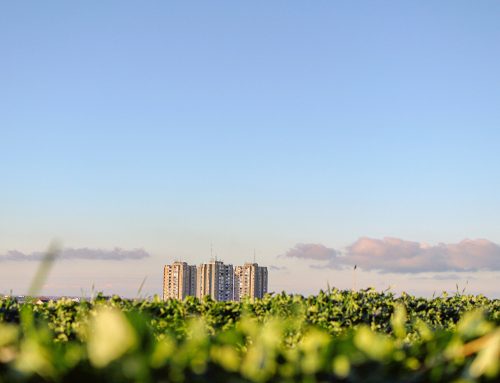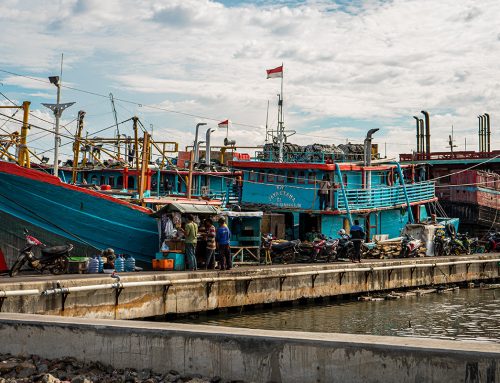Financial barriers are one of the major reasons for low deployment of energy efficient buildings in Indonesia.
Find out more about a Ministry of Finance Indonesia collaboration with GBPN and Monash University to identify financial mechanisms for green buildings.

The buildings sector accounts for nearly a third of Indonesia’s final energy consumer consumption and is expected to rise to 40% by 2030 according to Green Building Council Indonesia (2019). The rapidly expanding buildings sector creates a challenge for the country’s mission of net-zero emissions nationally by 2060 or earlier. While Indonesia has stepped up on policy and regulatory efforts, green building initiatives are perceived to be less profitable by builders and building owners due to the lack of financial incentives and capacity building limitations.
According to Ratri Widyadari, National Strategic Advisor for Indonesia, there is an urgent need for fiscal and non-fiscal support for green initiatives in the built sector.
“There is a lack of climate finance innovation and diversified sources of financing for sustainable buildings in Indonesia. Financial barriers are one of the major reasons for low deployment of energy efficient buildings,” Ms Widyadari said.
“Delivering policy changes that expand the coverage of energy policy will encourage low carbon building policy implementation in Indonesia in line with the national goal of zero-emissions by 2060.
“There needs to be participation from both, public and private sector to ensure that policy implementation aligns with the Government of Indonesia’s commitment to reduce Greenhouse Gas (GHG) emission and energy emission intensity. Fiscal and non-fiscal incentives are key to driving this participation.”
Identifying challenges and opportunities for potential savings from green buildings
The Ministry of Finance (MOF) has engaged GBPN to provide support to the Fiscal Policy Agency as Indonesia’s National Designated Authority for the Green Climate Fund (NDA-GCF). In 2022, MOF’s Fiscal Policy Agency collaborated with GBPN and Monash University on a project that will help to identify challenges and opportunities for potential savings from net-zero buildings in Indonesia. The collaboration will focus on four key activities:
- Technical advice and support to assist the MOF’s FPA National Designated Authority (NDA) of the Green Climate Fund (GCF) in reviewing and prioritising the incoming Green Climate Fund (GCF) proposals that are sustainable buildings-related
- Creating a network of champions on climate financing alternatives based on best practices and low carbon incentive mechanisms.
- Capacity Building on sustainable buildings and the co-benefits of sustainability strategies in the building sector to develop the NDA-GCF team’s capabilities in reviewing and assessing the incoming proposals that are sustainable buildings related.
- Research paper on sustainable building best practices, including on fiscal and financial policies that are relevant to the Indonesian market with recommendations on policy options for MOF’s FPA to support the domestic carbon market development in Indonesia and contribute to achieving Indonesia’s NDC commitments and National Climate Targets.
The Fiscal Policy Agency’s Director of the Centre for Climate Finance and Multilateral Policy, Dian Lestari said, “Indonesia’s fiscal and development policy is supporting and heading towards a green economy. Sustainable buildings could contribute significantly to the country’s ability to achieve our Nationally Determined Contribution (NDC) targets. Hence, we hope our partnership will strengthen our capacity and policies towards this achievement.”
Capacity Building is essential to creating change

According to Sandra Pranoto, GBPN’s Senior Advisor for Indonesia, capacity building for the stakeholders is essential for better participation and understanding of the incentives mechanism.
“A deep understanding of the underlying principles of green buildings and how fiscal incentives can support their adoption is essential for the success of any incentive mechanism,” she said.
“We have conducted a series of stakeholder consultations in the form of deep dive sessions covering green building mechanisms. These sessions are aimed at equipping the stakeholders to understand and adopt key recommendations into their policies. The sessions also helped us to collect valuable insights into the challenges in the green building market in Indonesia.”
Research support to drive market transformation
 GBPN will continue to work with MOF to make the green building incentives more accessible. GBPN’s fiscal policy expert, Poppy Ismalina, is leading the research activities with a focus on barriers, innovation and government support for financing schemes for sustainable buildings. The research will include a case study on the Bali Province, where GBPN has an ongoing engagement with solar panels.
GBPN will continue to work with MOF to make the green building incentives more accessible. GBPN’s fiscal policy expert, Poppy Ismalina, is leading the research activities with a focus on barriers, innovation and government support for financing schemes for sustainable buildings. The research will include a case study on the Bali Province, where GBPN has an ongoing engagement with solar panels.
“Our aim is to produce implementable policy recommendations to develop the market for sustainable buildings in Indonesia. The research will look at the most workable and affordable financing schemes that can be applied in the different regions based on the local affordability,” Ms Ismalina said.
The findings and recommendations will be presented in early 2023, at a knowledge dissemination event. The project with MOF will continue to leverage other ongoing projects of GBPN to support Indonesia to meet its zero-emission goals.
| Project Name: Green Finance for Sustainable Buildings |
|
|---|---|
| Goal: | To support the Ministry of Finance through the Fiscal Policy Agency (FPA)’s PKPPIM Unit in building their capabilities in developing fiscal policies and finance incentive policies that will support the market uptake of sustainable buildings nation-wide. |
| Funded by: | |
| Duration: |
June 2021 – Dec 2022 (18 months) |
| Location: |
Jakarta, Indonesia |
| Level of Government: | National |
| Reports and Links: | |
| Government Partner/s: | Fiscal Policy Agency, Ministry of Finance, Indonesia |
| Research Partners: | |
| Implementation Partner/s: | None |
| Advocacy Allies: | None |
| GBPN Expert: | Associate Professor Poppy Ismalina |
| Related Project/s: | Not available at the moment but will roll a phase 2 |





